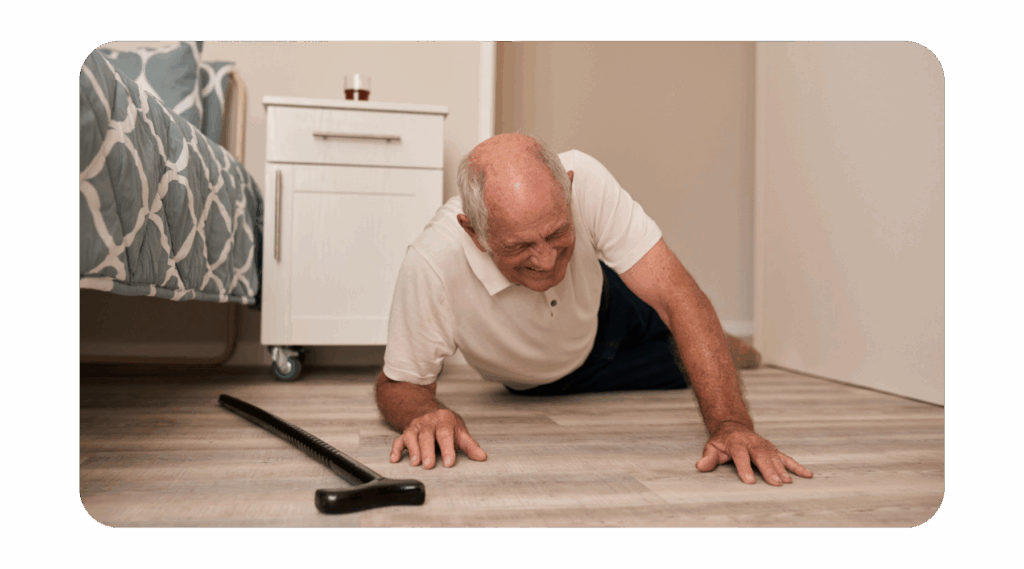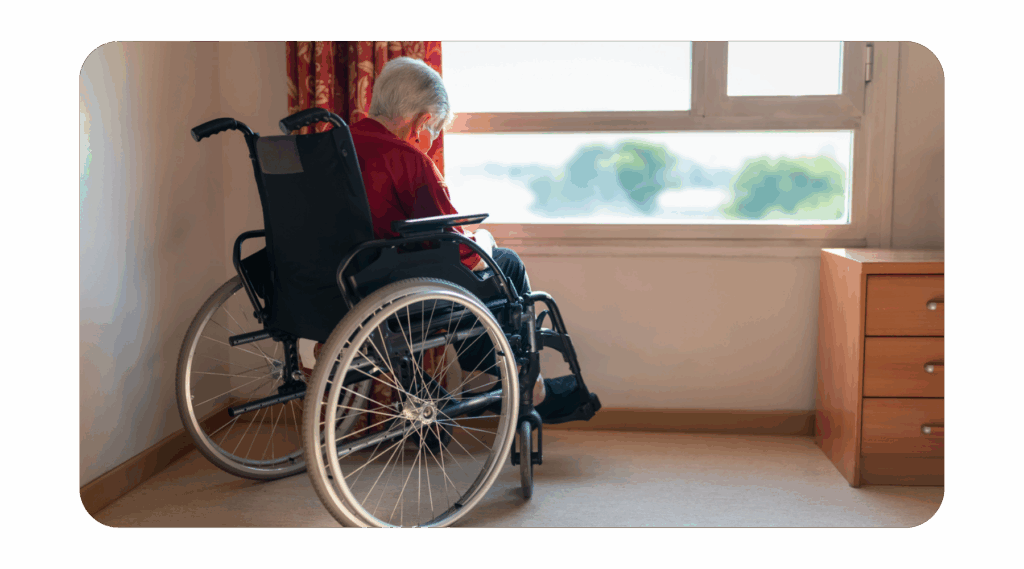How Understaffing and Poor Training in Nursing Homes Lead to Patient Harm

When placing a loved one in a nursing home, most families expect compassionate care and safety. Unfortunately, understaffing in many nursing homes turns that hope into a nightmare. The reality is harsh: fewer caregivers on duty means less attention for residents, which can lead to serious injuries and even wrongful death. For families navigating these challenges, understanding how understaffing directly causes patient harm and what legal options exist is your best course for getting justice.
Key Takeaways:
- The Hidden Dangers of Understaffing in Nursing Homes
- Caregiver Negligence and Training Shortfalls
- What Rights Do Nursing Home Residents Have?
- Spotting Signs of Nursing Home Understaffing and Neglect
- Taking Legal Action: Nursing Home Abuse Lawyer Support
- What Families Can Do Now
- Frequently Asked Questions
The Hidden Dangers of Understaffing in Nursing Homes
Nursing homes face pressure to control costs while providing adequate care. But when budgets tighten, staffing often suffers. Imagine a nurse responsible for 20 residents during a single shift, many of whom need assistance eating, bathing, or taking medication. The odds that some patients will be overlooked or neglected rise quickly.
How Understaffing Leads to Injury
- Delayed or missed care: When caregivers are spread thin, essential tasks like turning bedridden patients to prevent pressure ulcers may be skipped.
- Medication mistakes: Overworked staff may administer wrong doses or fail to monitor side effects.
- Falls: Without enough supervision, residents at risk of falling can get hurt.
- Emotional neglect: Loneliness and anxiety worsen when residents do not receive proper interaction and support.
These examples highlight why understaffing negligence claims have become more common. Families deserve to know when poor staffing choices contribute to nursing home neglect.
Caregiver Negligence and Training Shortfalls

Understaffing severely affects the quality of the care patients receive. Facilities that cut corners often hire less experienced or inadequately trained workers. Poor training can lead to caregiver negligence in nursing homes, compounding the risks.
For example, a caregiver unfamiliar with a resident’s mobility restrictions might assist improperly, causing falls or injuries. A lack of training on recognizing signs of infection or distress delays critical intervention. Nursing home staff training requirements exist to prevent these problems, but enforcement is inconsistent.
When facilities fail to provide proper training alongside sufficient staffing, residents pay the price. Such failures can be grounds for nursing home neglect lawsuits and other legal action for nursing home abuse.
What Rights Do Nursing Home Residents Have?
Nursing home residents have legal protections designed to ensure safe and respectful care. The Nursing Home Reform Act, part of the Omnibus Budget Reconciliation Act (OBRA) of 1987, sets federal standards for staffing levels, resident rights, and care quality. These include:
- The right to be free from abuse and neglect.
- The right to appropriate medical care.
- The right to privacy and dignity.
- The right to voice grievances without retaliation.
When understaffing prevents these rights from being honored, the nursing home can be held liable for injuries and harm caused. Recognizing violations early helps families take appropriate action.
Spotting Signs of Nursing Home Understaffing and Neglect

Family members visiting their loved ones might notice subtle signs indicating understaffing or neglect. These signs often include frequent bedsores or unexplained bruises, residents appearing dehydrated or malnourished, and staff rushing through tasks or failing to respond promptly. You might also see an increase in falls or emergency room visits, or hear residents express fear, sadness, or frustration. If you observe any of these warning signs, documenting them carefully can be crucial when pursuing potential legal claims.
Taking Legal Action: Nursing Home Abuse Lawyer Support
Facing nursing home neglect is overwhelming, but help is available. An experienced nursing home abuse lawyer understands the complexities of these cases, including proving how understaffing contributed to patient injury.
Legal claims often focus on:
- Understaffing negligence: Showing the facility failed to maintain adequate staffing levels required by law.
- Caregiver negligence: Demonstrating improper or careless care directly led to injury.
- Violation of resident rights: Establishing the nursing home ignored federal or state standards.
- Failure to train staff: Proving the facility neglected to provide necessary training, increasing risk.
At LMS Law, we guide families through each step, from gathering evidence to negotiating settlements or litigating for compensation. Holding negligent nursing homes accountable can prevent future harm and provide peace of mind.
Furthermore, seeking a claim also pressures nursing homes to improve staffing and training, helping protect other residents. It sends a clear message that cutting corners on care carries serious consequences, which can help fix the problem at its source.
What Families Can Do Now
If you suspect nursing home understaffing is causing harm:
- Keep detailed notes about incidents and care quality.
- Take photos or videos of injuries or unsafe conditions
- Communicate concerns in writing to nursing home management.
- Request medical records to review treatments and incidents.
- Consult a nursing home abuse lawyer early to understand your options.
Taking these steps helps protect your loved one’s well-being and prepares you for possible legal action.
How LMS Law Can Help with Nursing Home Understaffing and Patient Injury Claims
Understaffing in nursing homes creates serious risks that lead to patient injuries. From missed care to inadequate training, these issues affect many residents every day. Families need to recognize warning signs and know their rights to safe, respectful care. When neglect happens, LMS Law is here to hold nursing homes accountable and help you secure the compensation your loved one deserves.
If you have concerns about nursing home understaffing, patient injury, or need assistance with nursing home neglect lawsuits, our team is ready to support you. We offer free consultations to review your case and explain your options.
Call LMS Law today at (415) 400–7000 or contact us online to schedule your free consultation. If visiting our office isn’t possible, we can meet you at home or the hospital. Don’t wait—take the first step to protect your loved one’s rights now.
FAQs
What are the legal consequences of understaffing in nursing homes?
Nursing homes can face lawsuits and financial penalties if understaffing leads to patient injuries or neglect, as they have a legal duty to provide adequate care.
How can poor training in nursing homes lead to patient injuries?
Inadequate training can cause caregivers to make mistakes like improper medication administration or unsafe patient handling, increasing the risk of harm.
What should I do if a loved one is injured in a nursing home due to neglect?
Document the injuries and conditions carefully, report concerns to the facility, and consult a nursing home abuse lawyer to explore your legal options.
The above is not meant to be legal advice, and every case is different. Feel free to reach out to us at LMS Law if you have any questions. Information contained in this content and website should not be relied on as legal advice. You should consult an attorney for advice on your specific situation.
Visiting this site or relying on information gleaned from the site does not create an attorney-client relationship. The content on this website is the property of LMS Law and may not be used without the written consent thereof.

